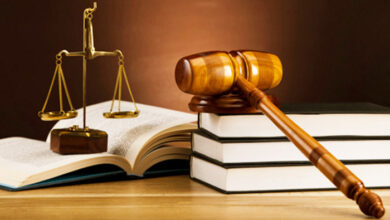نظريات التطور العلمي والإبستمولوجيا المعاصرة
theories of scientific development and contemporary epistemology

اعداد : المصطفى عبدون – طالب باحث بمركز الدراسات في الدكتوراه – كلية العلوم الإنسانية والاجتماعية جامعة ابن طفيل– القنيطرة-المغرب.
المركز الديمقراطي العربي –
-
مجلة الدراسات الثقافية واللغوية والفنية : العدد السادس والعشرون كانون الأول – ديسمبر 2022 ،المجلد 6– مجلة دولية محكمة تصدر عن المركز الديمقراطي العربي المانيا- برلين.
- تعنى بنشر الدراسات والبحوث في التخصصات الأنثروبولوجيا واللغات والترجمة والآداب والعلوم الاسلامية والعلوم الفنية وعلوم الآثار.كما تعنى المجلة بالبحوث والدراسات الاكاديمية الرصينة التي يكون موضوعها متعلقا بجميع مجالات علوم اللغة والترجمة والعلوم الإسلامية والآداب، وكذا العلوم الفنية وعلوم الآثار، للوصول الى الحقيقة العلمية والفكرية المرجوة من البحث العلمي، والسعي وراء تشجيع الباحثين للقيام بأبحاث علمية رصينة.
Journal of cultural linguistic and artistic studies
للأطلاع على البحث “pdf” من خلال الرابط المرفق :-
الملخص :
في بداية القرن العشرين عرفت مجالات العلوم تطورا كبيرا، سواء على المستوى الكمي بتراكم الاكتشافات والاختراعات، أو على المستوى الكيفي بتعدد المناهج والنظريات. إن هذه التحولات الجدرية، سيكون لها لا محال تأثير كبير على الإبستمولوجيا المعاصرة، ومن هنا أهمية التطرق لهذا المفهوم واستخداماته المتعددة والمتطورة، على اعتبار أنه قد يكون هناك تعايش بطرق مختلفة لتصورات وممارسات إبستمولوجية وقد تكون أحيانا ما غير متجانسة أو مُتعارضة. بما أن الإبستمولوجيا خطاب، سيكون من المناسب تحديد طبيعتها، هل هي خطاب فلسفي أو علمي وما هي وسائله؟ لتوصيف موضوع هذا الخطاب، لابد من طرح السؤال، ما الذي يجب أن نفهمه من مفهوم العلم؟ وهل استطاع مؤرخو العلم وفلاسفته، أن يصلوا إلى اتفاقٍ حول تحديد طبيعته؟ ما هي التخصصات التي يمكن تُصنف ضمن مجال العلم؟ غالبا ما يتم خلق تعارض بين العلم والعلوم كموضوعين محتملين للإبستمولوجيا، لكن ما معنى وأهمية مثل هذا التعارض؟ كيف تناولت الإبستمولوجيا المعاصرة نظريات تطور العلوم؟ هل يمتلك العلم بالفعل استقلالية كاملة أم أنه جزء من الثقافة الإنسانية، يتطور بتطورها وينكص بنكوصها؟
Résumé
Au début du XXe siècle, les domaines de la science connaissent un grand développement, tant au niveau quantitatif par l’accumulation de découvertes et d’inventions, qu’au niveau qualitatif avec la multiplicité des méthodes et des théories. Ces transformations radicales auront inévitablement un impact significatif sur l’épistémologie contemporaine, d’où l’importance d’aborder ce concept et ses usages multiples et avancés, étant donné qu’il peut y avoir une coexistence de différentes conceptions et pratiques épistémologiques, et qu’elles peuvent parfois être hétérogènes ou conflictuelles. L’épistémologie étant un discours, dans ce sens, qu’il conviendrait de définir sa nature, est-ce un discours philosophique ou scientifique, et quels sont ses moyens ? Pour décrire l’objet de ce discours, il faut se poser la question : Que faut-il comprendre du concept de science? Les historiens des sciences et les philosophes ont-ils pu s’accorder sur la définition de sa nature ? Quelles spécialisations peut-on classer dans le domaine de la science? Un conflit est souvent créé entre la science et les sciences en tant que sujets potentiels pour l’épistémologie, mais quelle est la signification d’un tel conflit? Comment l’épistémologie contemporaine a-t-elle abordé les théories du développement des sciences? La science a-t-elle vraiment une indépendance complète ou fait-elle partie de la culture humaine, se développe avec son développement et régresse avec sa régression ?
Abstract
At the beginning of the 20th century, the fields of science underwent great development, both at the quantitative level through the accumulation of discoveries and inventions, and at the qualitative level with the multiplicity of methods and theories. These radical transformations will inevitably have a significant impact on contemporary epistemology, hence the importance of addressing this concept and its multiple and advanced uses, given that there may be a coexistence of different epistemological conceptions and practices, and that they can sometimes be heterogeneous or conflicting. Epistemology being a discourse, in this sense, that it would be appropriate to define its nature, is it a philosophical or scientific discourse, and what are its means? To describe the object of this discourse, the question must be asked: What should be understood from the concept of science? Have historians of science and philosophers been able to agree on the definition of its nature? What specializations can be classified within the field of science? A conflict is often created between science and the sciences as potential subjects for epistemology, but what is the significance of such a conflict? How has contemporary epistemology approached theories of the development of sciences? Does science really have complete independence or is it part of human culture, growing with its development and regressing with its regression?




